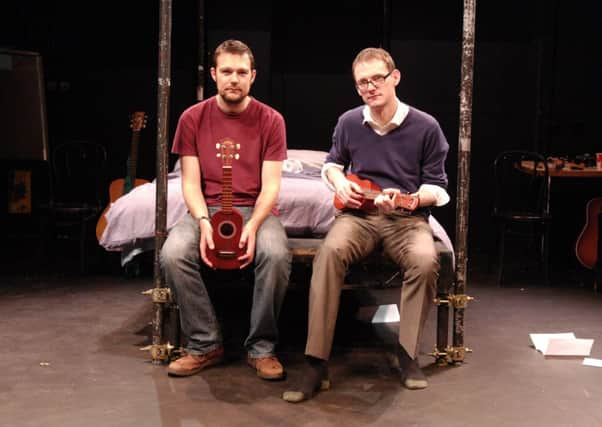Joyce McMillan: Optimism powerful force for change


And at the Traverse Theatre, two plays were on stage; one a powerful, menacing drama about ordinary teenage classroom tensions gradually shading towards the full horror of civil war, and the other an absolutely beautiful 21st century romantic musical comedy, set in the steets of Edinburgh, put together by David Greig and musician Gordon McIntyre, beautifully performed by Cora Bissett and Matthew Pidgeon, and as cheerfully bitter-sweet as its title, Midsummer.
Midsummer was a huge box office success, the other play less so; audiences always tend to prefer a feelgood show. What was striking, though, was that in many ways Midsummer also felt like the better play, braver, more original, and more radical in its direct challenge to the emotional cynicism of a generation with commitment issues; and I thought about that 2008 moment again, when I watched an audience in Glasgow rise to its feet, weep and cheer, last weekend, in appreciation of Timothy Sheader’s superb touring production of the Haper Lee’s, To Kill A Mockingbird.
Advertisement
Hide AdFor like Midsummer – but even more so – To Kill A Mockingbird is a play about hope, and about humanity’s better nature. Its theme is that dullest of qualities, civic virtue, and its hero, the lawyer Atticus Finch, a quiet man who feels impelled to do what is right, even at some risk to himself and his beloved children. It’s a story that could be worthy and sanctimonious, particularly for British audiences, at a safe distance from the racial politics of the southern United States. But because the narrator is a nine-year-old girl, Atticus’s daughter Scout, we view it through the lens of a child’s fierce, undefeated sense of justice; and the result is an explosively radical and empowering piece of theatre, that reaches straight into our hearts, and unleashes our own deep, heartbroken yearning for justice and decency.
And this is interesting, from a theatrical point of view, because so much of our theatre culture still seems stuck in a mid-20th century set of assumptions about what radical theatre looks like. Reel off the names of the great new English playwrights of the postwar period – from John Osborne and Harold Pinter to Sarah Kane – and you open yourself to an avalanche of dystopian misery and cruelty, designed to expose the rotten foundations of a self-satisfied postwar consensus, and then to document its bitter fall. And the result is often deeply depressing and disempowering, leaving audiences convinced that there is nothing to be done except to go to the pub, and get drunk.
And if that impulse to expose the dark underbelly of society, and to leave it at that, was ever a radical one, it certainly seems to have ceased to be so now, when it so obviously complies with the depressive idea that the social and economic system we currently have reflects the dark reality of human nature, and can therefore never be altered. Last year, in one of his final statements as Education Secretary for England, Michael Gove famously criticised the pervasive presence of To Kill A Mockingbird on school syllabuses, arguing that pupils should concentrate on British classics.
The passionate reaction of audiences, though, suggests it’s not the story’s American identity that politicians like Gove find unsettling. It’s rather the revolutionary suggestion that people are not motivated purely by greed and cynicism; and that sometimes the greatest and most dramatic hero may not be the guy with the gun, but the quiet man or woman with the law book, and the vision of a better world, just within our grasp.
• To Kill A Mockingbird is at the King’s Theatre, Edinburgh, until tonight; and at His Majesty’s, Aberdeen, 16-21 February.
FOLLOW US
SCOTSMAN TABLET AND MOBILE APPS